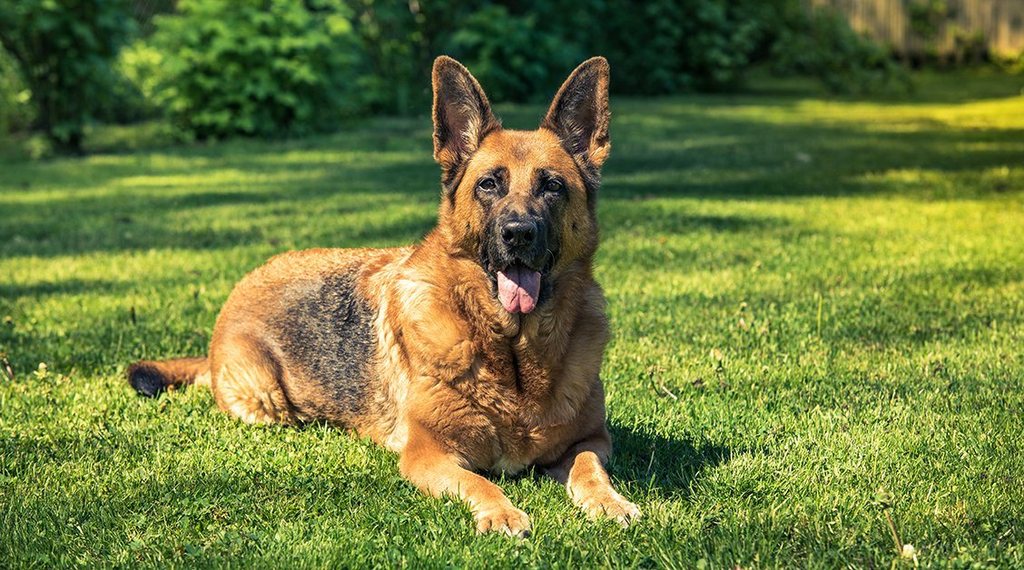If you want perfection, you will love having a German Shepherd as your faithful companion. These dogs are the most popular worldwide, and this is because they have a great appearance to be sporty. A German shepherd requires a lot of care, so if you think of having one, you must be attentive to its needs.
The German Shepherd throughout his life is affected by at least 50 types of diseases, mainly at the stomach level. A poor diet or hereditary problems can contract these diseases; these dogs have a delicate stomach. You must prevent your dog’s gastrointestinal issues from worsening and take prompt action upon detection.
Problems in your dog’s stomach can be minor or even life-ending. Know what diarrhea is for the German Shepherd and what identifies it from other diseases in the stomach of dogs of another breed. Learn what the causes of this diarrhea are and the symptoms you will detect in your pet.
As a final step, you will discover the treatments you should take with your German Shepherd to treat this serious disease. You must know how to prevent German Shepherd diarrhea from keeping your pet happy. By taking all preventive measures, you will prolong the life span of your German Shepherd by keeping it for many years.
What Is German Shepherd Diarrhea?
Contents
The German Shepherd is identified as a dog that expresses a lot of control but internally has a sensitive stomach. It is a huge disadvantage that your dog has a delicate stomach because that means being on a diet for life. Unlike other dogs, the German Shepherd cannot eat everything he wants; he has to abstain from some meals.
As his master and companion, you have to give your dog classified food, kibble, or food indicated by the veterinarian. You have to refrain from giving him bones or any food that is pointed, and your pet brought it to him, causing serious problems. German Shepherd diarrhea also talks about other differences in common diarrhea suffered by other dogs which are:
- It can be the symptom of a hidden disease or even a simple infection in the intestine.
- Your German Shepherd can suffer from dehydration if you don’t treat it correctly.
- You can observe the color of white, liquid, or even watery stools with diarrhea in German Shepherd.
- The problem can be caused in the large intestine or small intestine.
- It is caused when the digestive system tries to protect your pet’s body from unknown or dangerous objects. The stomach receives a lot of colored water, and therefore, your German Shepherd’s stool forms into liquid.
It is a complex disease but one that you can treat to keep your German Shepherd happy. You must be very attentive in prevention measures; if it does not work, you should go to the nearest vet.
Causes Of German Shepherd Diarrhea
This gastrointestinal disease in German Shepherd has different causes due to its neglect or sensitivity in your dog’s stomach. German Shepherd diarrhea occurs mostly with puppies because they are more exposed to diseases. Adult dogs are not exempt from diarrhea, but it can be milder, the main causes are:
- Your pet may suffer from irritable bowel disease or irritable bowel syndrome; both are different. A hereditary problem causes IBD syndrome that their German Shepherd presents that keeps them with a very delicate stomach. IBS syndrome is caused by the stress that your pet accumulates, mainly in male puppies, this can be treated.
- When you have a puppy, you will notice that they want to lick or eat everything they can get in the first weeks of birth. You should prevent them from doing this so that they do not suffer from stomach problems.
- A very common cause of German Shepherd diarrhea is when you change its diet or feed its unhealthy foods. You have to avoid giving your dog drinks such as milk, cereals, fiber, fat, or even corn.
- He may have an allergy reaction to a medicine that you give him, and you must consult with the vet.
- Your diarrhea may be caused by some bacteria or parasites that you contracted and use dewormers from time to time.
Symptoms Of German Shepherd Diarrhea
Diarrhea in a German Shepherd does not have a scheduled time or time, but you can detect it with some symptoms. These intestinal problems can happen to a puppy a few weeks old or an older dog with many years by your side. A German Shepherd can have two types of diarrhea: chronic or acute, its symptoms are:
- With acute diarrhea, you may detect mucus in the dog’s stool.
- Your dog may lose his appetite; you will notice that he looks thinner in a few days.
- Your German Shepherd may suffer from drowsiness due to pain from bloating or gas.
- You will notice that your dog is restless.
- Your dog may suffer from fever if his intestine is infected. In this case, you should go quickly to the vet.
Symptoms can vary in the German Shepherd, but you must take proper care of him to avoid suffering. If you feel that your pet has prolonged its illness, it is useful to see a specialist veterinarian. Try to make your pet happy; do not let diarrhea be the cause of his death.
Treatments
Treatment for your German Shepherd’s diarrhea is variable depending on how severe the illness with its symptoms is. You have to prevent your young or old German Shepherd from dehydration; this can be fatal. If your pet has very mild diarrhea, you can give him home remedies in the following way:
- Keep your German Shepherd hydrated, and you have to give him clean water, you have to change it daily.
- Feed your dog for a maximum of 12 or 24 hours so that his stomach rests and works appropriately.
- Try to give your pet a combination of boneless chicken and a minimal serving of non-spiced rice. With this diet, your German Shepherd will be filling his stomach and gradually increasing the portion of food.
- You need to give your pet a pumpkin puree to harden his stool and eliminate stomach pain.
If the problem persists in the following days with the treatment, you should go to a veterinarian. Keep the treatment for at least one week before going to the vet, who will indicate an effective remedy for your pet.
Prevention
This disease cannot be avoided, but you can prevent it in your German Shepherd by following these rules:
- Keep your house or home of the German Shepherd clean; this is mandatory if you have a puppy.
- You can give your pet probiotic foods to prevent diarrhea.
- Avoid giving him food in excess.
- Keep your German Shepherd dewormed according to what the vet tells you.
- If you want to change your dog’s diet, you have to do it in stages, with small bites.
- Please do not give him food with excess fat, salt, or even cold milk; this can cause diarrhea.
- Your German Shepherd cannot eat bones; this can give him diarrhea or a tear in his gut.




